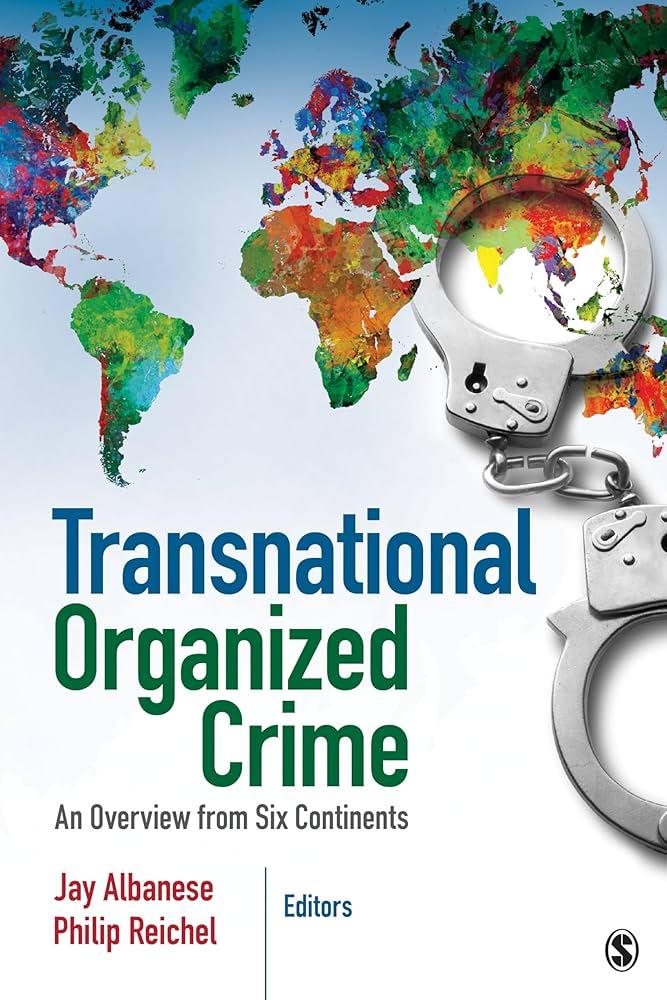Transnational organized crime continues to pose a formidable challenge to global security and law enforcement agencies worldwide. The Federal Bureau of Investigation (FBI) remains at the forefront of the battle against these complex criminal networks that operate across borders, exploiting gaps in international cooperation and jurisdiction. This article explores the FBI’s strategies, investigative tools, and collaborative efforts designed to dismantle transnational syndicates involved in drug trafficking, human smuggling, cybercrime, and other illicit activities that threaten communities in the United States and beyond.
Transnational Organized Crime Threats and Their Impact on National Security
Transnational criminal networks operate with alarming sophistication, exploiting digital advances and globalization to evade law enforcement across borders. Their activities—ranging from human trafficking and drug smuggling to cybercrime and money laundering—pose significant challenges to national security frameworks worldwide. These illicit enterprises destabilize governments, corrupt agencies, and erode the rule of law, thereby undermining economic stability and public trust in institutions. The fluid nature of these organizations necessitates a dynamic and coordinated international response to disrupt their evolving tactics and financial flows.
Addressing these threats requires a multifaceted approach, combining intelligence-sharing, advanced technology deployment, and collaborative law enforcement efforts. Key vulnerabilities exploited by these groups include porous borders, weak regulatory systems, and inadequate cyber defenses. The table below highlights primary transnational crime types and their corresponding national security impacts:
| Crime Type | Primary Impact | Countermeasure Focus |
|---|---|---|
| Drug Trafficking | Public health crises, violence | Border control, interdiction |
| Human Trafficking | Human rights violations, social destabilization | Victim protection, legal reform |
| Cybercrime | Data breaches, critical infrastructure attacks | Cybersecurity, intelligence cooperation |
| Money Laundering | Economic distortion, illicit finance | Financial regulation, asset tracking |
Strengthening international partnerships and enhancing domestic capabilities remain critical priorities to safeguard national security against the persistent and adaptable threat posed by transnational organized crime.
Key Strategies Employed by the FBI to Combat Global Criminal Networks
The FBI’s initiatives to dismantle international crime syndicates rest on a foundation of intelligence-sharing partnerships and advanced technological integration. By coordinating with global law enforcement agencies, the Bureau gains critical insights into transnational operations, enabling preemptive actions against illicit networks. Cutting-edge surveillance tools and data analytics empower agents to track illicit financial flows, identify key operatives, and disrupt communication channels that sustain criminal enterprises.
Key components of the FBI’s approach include:
- Joint Task Forces: Collaborative operations with domestic and international partners to combine expertise and resources.
- Cybercrime Division: Targeting online platforms exploited for money laundering, trafficking, and illicit trade.
- Undercover Operations: Infiltration of criminal networks to gather actionable intelligence and evidence.
- Legal Frameworks: Leveraging international treaties and agreements to prosecute offenders beyond U.S. borders.
| Strategy | Focus Area | Outcome |
|---|---|---|
| Intelligence Fusion Centers | Information Sharing | Enhanced Global Coordination |
| Advanced Cyber Surveillance | Digital Crime Networks | Disruption of Illicit Channels |
| Legal Collaborations | International Prosecutions | Cross-border Accountability |
| Human Intelligence | Undercover Infiltration | Critical Evidence Acquisition |
Collaborative International Efforts to Disrupt Cross-Border Crime Operations
Across continents, law enforcement agencies are forging unprecedented partnerships to combat transnational criminal networks. These alliances leverage advanced intelligence sharing, joint operations, and synchronized legal initiatives to dismantle syndicates involved in human trafficking, drug smuggling, and cybercrime. By pooling resources and expertise, task forces can trace illicit financial flows, intercept contraband shipments, and apprehend key figures who operate seamlessly across international borders.
The effectiveness of these collaborations is underpinned by a framework that emphasizes mutual trust and legal harmonization among countries. Key strategies include:
- Real-time intelligence exchange to anticipate and prevent criminal acts.
- Coordinated raids and arrests that span multiple jurisdictions.
- Capacity building programs to enhance investigative skills globally.
| Region | Focus Areas | Recent Result |
|---|---|---|
| Europe | Drug Trafficking | 120 arrests in joint operation |
| Asia-Pacific | Human Trafficking | Rescue of 300 victims |
| Americas | Cybercrime | Disruption of $10M fraud ring |
Policy Recommendations for Strengthening Federal and Global Enforcement Partnerships
To effectively counter transnational organized crime, enhancing collaboration between federal agencies and global enforcement partners is crucial. Emphasizing regular intelligence-sharing initiatives can dismantle complex criminal networks swiftly and decisively. Federal entities should prioritize establishing interoperable communication platforms that facilitate real-time information exchange. Moreover, comprehensive training programs jointly developed and delivered with international counterparts will elevate operational standards and promote a unified response to emerging threats.
Key strategic actions include:
- Coordinated cross-border joint operations targeting major crime syndicates
- Standardization of investigative and legal procedures to streamline extradition and prosecution
- Investment in advanced technologies such as AI-driven analytics and blockchain forensic tools
- Expansion of public-private partnerships to leverage industry expertise and resources
| Initiative | Objective | Expected Outcome |
|---|---|---|
| Global Intelligence Fusion Center | Centralize data from partner agencies | Accelerated identification of transnational threats |
| Unified Training Modules | Harmonize investigative techniques | Enhanced interoperability and efficiency |
| Technology Integration Task Force | Adopt cutting-edge forensic tools | Improved evidence collection and case resolution |
The Way Forward
In the relentless fight against transnational organized crime, the FBI continues to adapt and evolve its strategies to meet the complex challenges posed by these sophisticated networks. Through international cooperation, cutting-edge technology, and unwavering commitment, federal law enforcement aims to dismantle these criminal enterprises and safeguard the public. As these crimes transcend borders, so too must efforts to combat them, underscoring the importance of global partnerships in securing a safer future for all.




